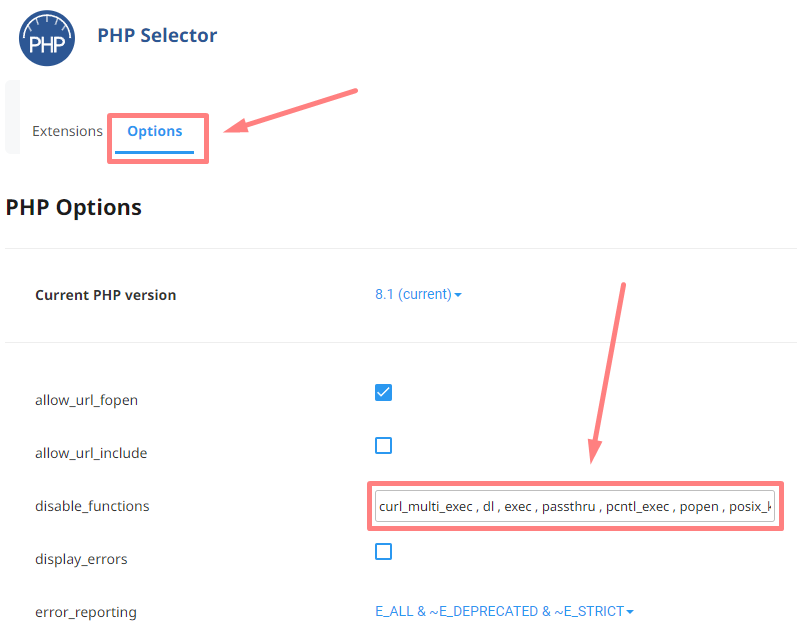Cloudlinux offers a convenient PHP Selector application that you can use to enable functions that are normally disabled by default for PHP. Alternatively you can also disable additional PHP functions if required.
These options can be accessed in both DirectAdmin or cPanel, under the "Select PHP Version" application. Below is a quick step-by-step guide on enabling or disabling PHP Functions in your control panel of choice.
Step 1: Accessing the "Select PHP Version" application
-
Log in to your cPanel or DirectAdmin account.
-
In your hosting accounts dashboard, navigate to the
Select PHP Versionapplication.In cPanel, this is found under the
Softwaresection.In DirectAdmin, this is found under the
Extra Featuressection.
Step 2: Enabling or Disabling PHP Functions
-
Once you have accessed the PHP Selector tool, Navigate to the Options Tab and you will notice a list of disabled PHP functions.

-
Under
Disable Functions, simply remove the PHP functions you would like to enable from the list. Alternatively, if you would like to disable a PHP function simply add it to the list after a comma.
Any changes made to the disable_functions list will update your accounts PHP immediately, with nothing else being required to be done on your part.
By default, the following PHP functions are disabled and present within the disabled_functions list:
curl_multi_exec, dl, exec, passthru, pcntl_exec, popen , posix_kill,
posix_mkfifo, posix_setuid, proc_close, proc_open, proc_terminate,
shell_exec, system, ftp_exec, leak, posix_setpgid, posix_setsid,
proc_get_status, proc_nice, show_source, escapeshellcmd,
showsource, symlink, escapeshellarg, escapeshellcmd
Warning
These functions are typically recommended to keep disabled, as they do have certain security holes within them that has a history of being exploited. You should only enable a specific function if it's required by your PHP application.

